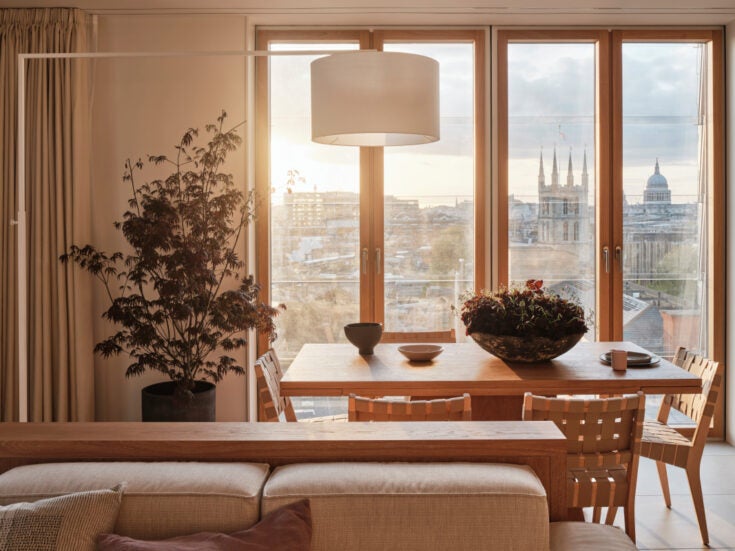Sales of English country houses are still fairly strong, but foreigners beware: life in the sticks is not without its quirks, says Ross Clark
Sales of English country houses are still fairly strong, but foreigners beware: life in the sticks is not without its quirks, says Ross Clark
The English countryside travels well. Switch on the television during the prime-time evening slot in any country from Finland to South Korea and there is a good chance that you will catch an episode of the ITV drama Midsomer Murders. Less concerned with an apparent murder rate that must exceed the Lower Bronx, for millions of viewers worldwide the English countryside is the ideal of rural life: polite, charming, a little Old World and — perhaps most importantly — groaning with nice houses.
Remarkably, though, it has taken a long time for wealthy individuals to take to buying property in the English countryside. For a decade or more, London has been a honey-pot for wealthy individuals looking to invest their money in property. The trend has extended westwards to Surrey, where golfing estates do not necessarily conform to an Englishman’s concept of a rural idyll, and the Chilterns. But beyond that, international buyers have long been noticeable by their absence.
The picture is, however, changing. Knight Frank recently revealed that 42 per cent of country houses sold for over £5 million in the South-east last year were bought by foreigners. At prices over £10 million, the proportion rises to 75 per cent. Just two years earlier, less than a quarter of country houses were sold to foreign buyers.
This goes some way to explaining why the country-house market is not in more trouble. True, the latest Knight Frank index reveals that country-house prices fell by 3.9 per cent in the second quarter of 2008 — a bigger drop than the agency has recorded since it started the index 13 years ago.
Yet, compared with a sinking market for British homes of average value, it is relatively constrained. A hard-up British aristocrat who puts his home on the market in a desperate attempt to raise some cash can comfort himself that there is a chance his financial miseries could be solved by the likes of Vladimir Lisin, the Russian steel businessman who recently paid £6.8 million for 16th-century Aberuchill Castle, set in 3,300 acres in Perthshire.
Nansidwell, a £3 million country house near Falmouth, Cornwall, was also recently sold to Pavel Maslovsky, a Russian mining billionaire, in spite of being a good two-hour helicopter ride from London. In a reversal of the television shows featuring Britons buying abroad, James MacKenzie of Savills recently sold a £2.5 million stud farm at Crewkerne, Somerset, to a Bulgarian.
So is this trend likely to continue? ‘When one buys, they often attract others,’ says MacKenzie, so it must only be a matter of time before Crewkerne opens its first Bulgarian club. But there are limits to how well international buyers are likely to settle in the deep English countryside. Anyone who thinks London is wet should not bother buying a property west of the capital: rainfall rapidly rises as one approaches the Atlantic coast. Midsomer Murders conveys order and tranquility, though not the all-pervading tang of dung that afflicts many a West Country village.
Less obvious is the social role that the country house plays in English rural life. Notwithstanding the paparazzi, it is possible to live a life of anonymity in London — especially if you are a fat, balding Russian oligarch. Or buy a house in the rural districts closest to London, says Craig Jordan of buying agents Property Vision, and you could be ‘just another chap who has made a few million in the City’.
But buy the prominent house in a village beyond the commuter belt and it might not be obvious that you are turning yourself into an object of public curiosity. Although the last vestiges of the feudal system were — theoretically, at any rate — abolished in the 1920s, it still matters who owns the big house. Worse still, buy a country house and you might find you own the village cricket pitch, where 22 men in whites turn up every Saturday expecting to blast a leather ball within yards of your drawing-room windows.
Or you might find yourself liable for repairs to the parish church. In Warwickshire, a couple spent over a decade and hundreds of thousands fighting a bill for £90,000 to pay for a new roof for the local church. Like thousands of other homes in the countryside, their house stood on ‘glebe’ land — originally owned by the church but still carrying a liability for upkeep.
‘We’ve had examples where foreign buyers have bought in the countryside, then sell up again six months later because they haven’t done their homework,’ says Ian Westerling of Hamptons International. ‘They see a property in one of the Sunday supplements, buy it and then realise that the rural idyll isn’t what they thought it was.’
Some foreign buyers are not always what they seem, says James MacKenzie. ‘Many of them have some tenuous link to Britain already. For example, we sold a farm on Dartmoor to a German recently, but he had an English wife.’ Often your ‘Russian’ buyer is British, but has worked in Russia for twenty years and has come back with a Russian wife. Such buyers are better able to cope with the eccentricities of English rural life.
Either way, that is not to say that they can cope with English planning law. It all went horribly wrong for one German couple, who bought a £1.9 million thatched mansion near Chipping Campden in the Cotswolds from a local builder. For them, it was the perfect embodiment of English rural life. Neighbours, however, described it as something out of Disney. Last year, the Cotswold District Council found the house was significantly different to its plans — and ordered the couple to demolish one third of their piece of English countryside.






